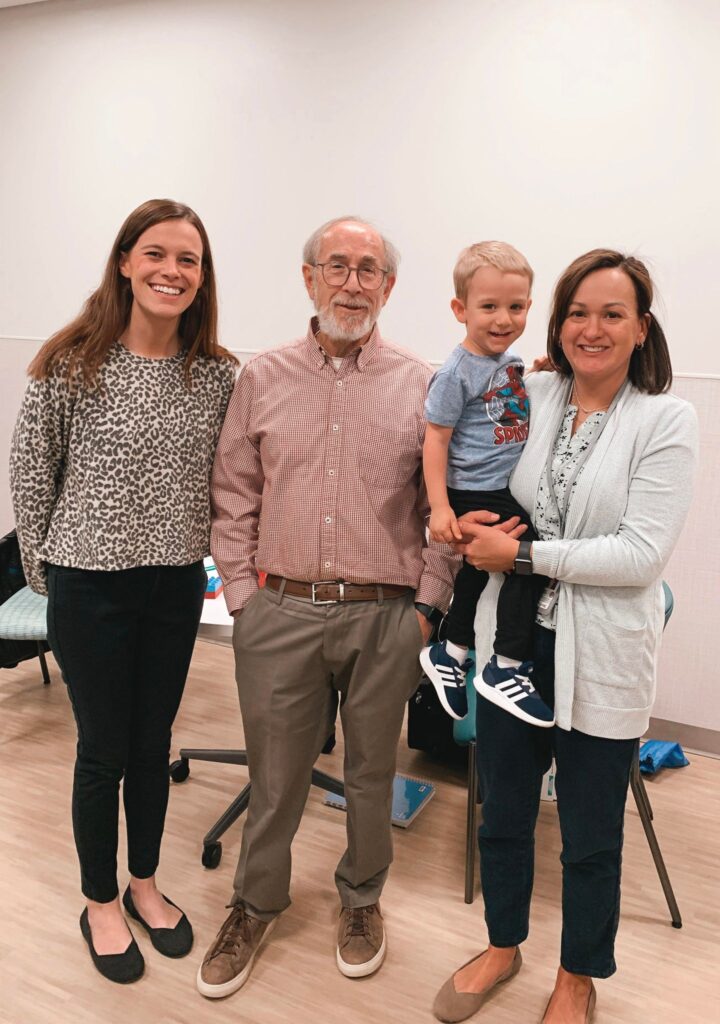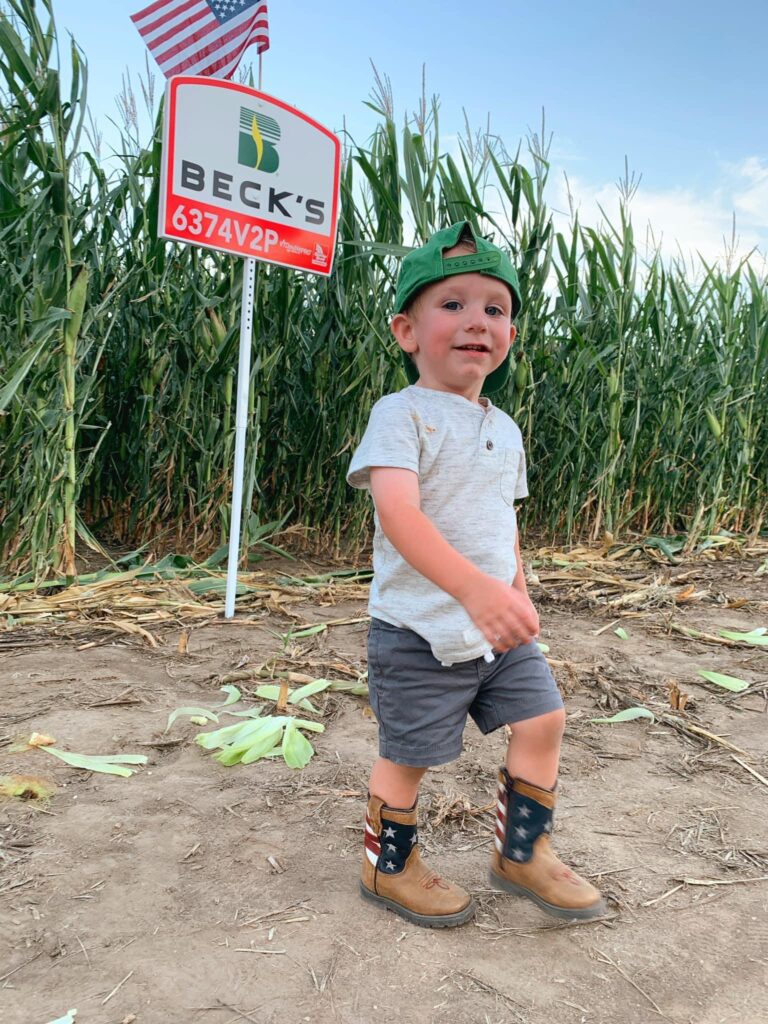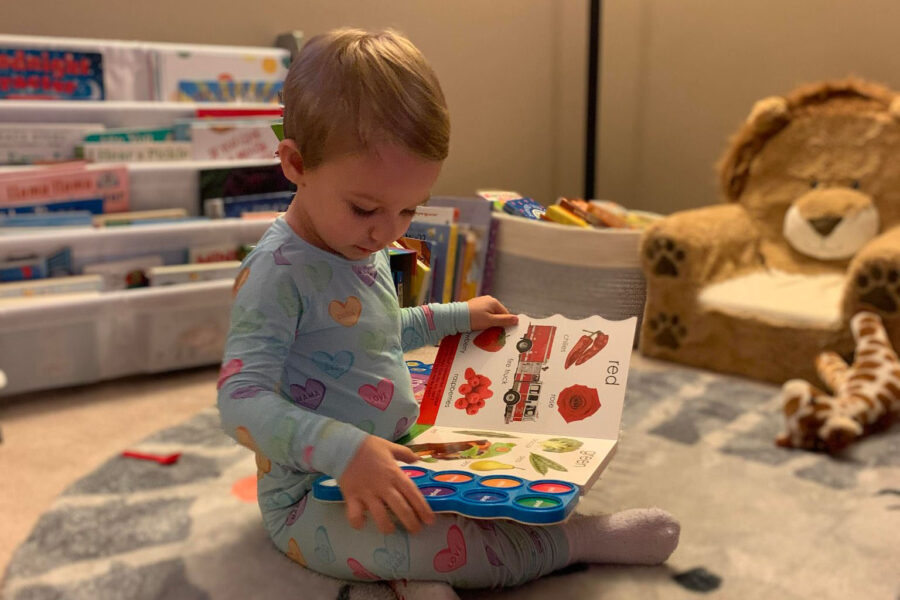Elissa Becker sometimes finds herself grumbling about how rambunctious her 2-year-old son can be.
But she’s quick to remember that his feisty spirit is a good thing.
It means Jackson’s development is right on track.
Born 10 weeks early — weighing just 3 pounds, 13 ounces — the Beckers were worried about possible developmental delays.
Thanks to care providers near their Norfolk, Nebraska, home and to the Developmental Tracking Infants Progress Statewide, or TIPS, program facilitated by the Munroe-Meyer Institute, Jackson is right where he should be.
The TIPS team is an interdisciplinary team that follows NICU graduates through a program that can identify delays in development.

Last month, Jackson graduated from the program, which saw him at MMI at 6, 16 and 24 months.
Despite making his debut so early, Jackson was born healthy, Becker said. But he struggled to master the skill of eating.
He spent 96 days in the neonatal intensive care unit at the Nebraska Medical Center. He eventually went home with a nasogastric tube.
“We felt like we were missing some of those milestones, like giving him a bath at home or being able to cuddle him or blow raspberries on his belly,” Becker said. “It was hard to create those memories in the hospital.”
When he went home, hospital staff set up the Beckers with home health visits, early intervention and TIPS. Jackson still struggled with eating, often having negative associations around taking a bottle or baby food. Eventually, he got a gastrostomy tube.
Because Jackson had reflux, tummy time proved tricky. Milestones like teething, cooing and blowing raspberries proved challenging, too, because he was slow to learn how to use muscles in his mouth.
Initially, Becker said, she was nervous about the appointments at MMI. She was put at ease quickly. Members of Jackson’s care team would often call to check in, answer questions and offer additional resources.
“We had such a positive experience with them. The team was so kind and friendly,” she said.
At each appointment, providers laid out where they’d like Jackson to be developmentally. They went into detail on how the Beckers could work with him at home.
Some things they worked on included strengthening his core muscles. Becker sat behind Jackson and held his base while he reached for toys in front of him and to his sides.
Jackson also tackled his pincer grasp, rolling over and activities like puzzles and memory games.
“It was reassuring because I felt like all of the hard work he was putting in at home was keeping him on the right track,” Becker said. “I didn’t want him to fall behind when he was already behind on eating. It was such a positive experience for us.”
Eating is still a work in progress, Becker said. Jackson’s eating at about a 9- to 12-month-old level, tolerating things like broth, cereal milk, ice cream or gravy.

Otherwise, Jackson is your typical 2-year-old. He loves trips to the park, the library and the YMCA. At home, he helps Mom wash dishes and make her morning coffee. He scoots down the stairs on his tummy and reads books in the living room. This spring, he’ll help fetch eggs at his grandparents’ farm.
“He’s adventurous and very clever. He’s very busy, but if my biggest complaint is him being ornery, then I’m blessed,” Becker said. “That’s what he should be doing at this age.”
Jackson is one of more than 36,000 babies to have enrolled in the TIPS program since it started in 2000, said program director Kerry Miller, PhD.
TIPS is one of the only statewide programs of its kind in the United States, Dr. Miller said. MMI collaborates with 12 hospitals across the state to provide data on the early development of babies like Jackson who graduate from the NICU.
“Families are at the center of all that we do,” Dr. Miller said. “The Beckers viewed us as collaborators in Jackson’s care, actively seeking guidance on how to optimize his development. It was a joy for our team to watch Jackson’s progress during his first two years of life. His developmental strides stand as a testament to his resilience and the nurturing care and developmental support provided by his parents.”
